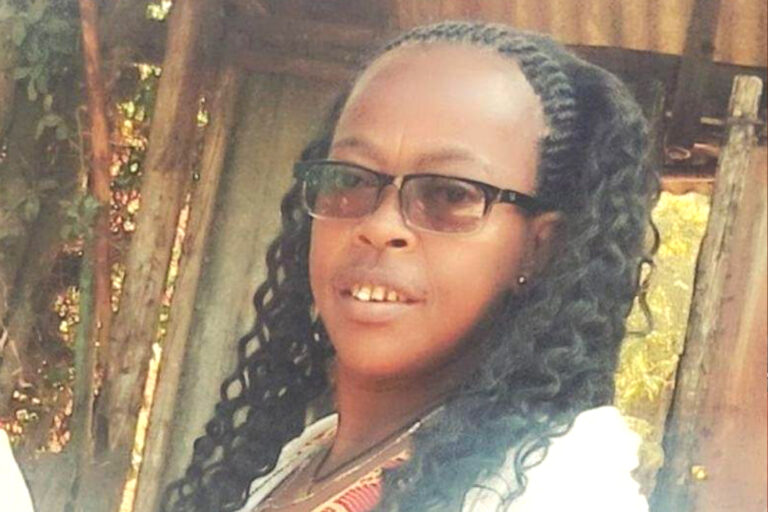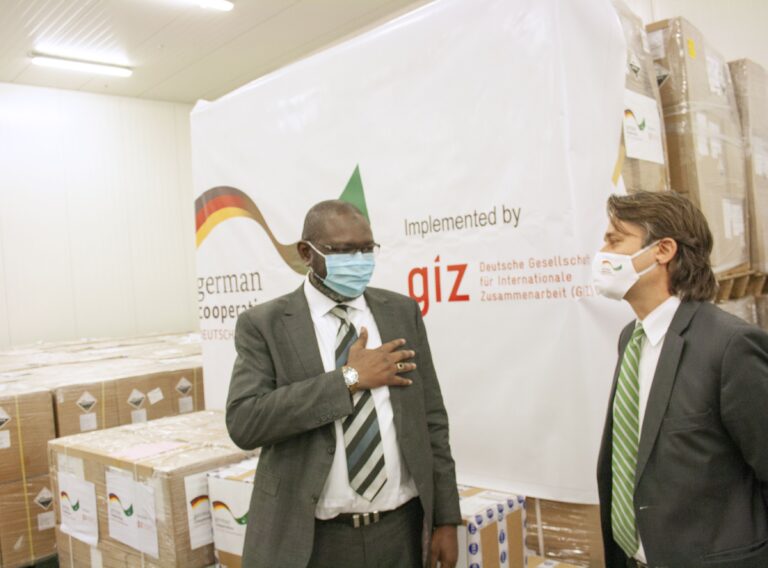Adapting to the ‘new normal’ Great Ethiopian Run is getting ready to host the second edition of its 5km Virtual Run which will take place in the week immediately before Ethiopian New Year from 6 to 10 September 2020.
A total of 1,000 participants of all ages and from all parts of the world are expected to take part in this race.
Great Ethiopian Run is particularly keen for children and women to participate in the run, in line with its advocacy for healthy living for the whole family.
Next week marks the start of a 4-week social media campaign leading up to the run where incentives and challenges will be offered to those who register for the run.
Ethiopian Airlines is offering two return tickets to any destination in the world served by its network. These tickets will be awarded by raffle from among all run registrants.
Participants are encouraged to wear something yellow which is the color associated with hope while doing the race. All participants will receive an e-certificate signed by Haile Gebreselassie after completing the run. At the time of registration they will receive a seedling to plant in or near their own home, as part of Ethiopia’s drive for a cleaner and greener environment.
Registration for the run opens started on 6th August 2020 and can be done from any smartphone. Payment for registration can be done through Amole or other optional online banks payments.
Great Ethiopian Run to host 2nd edition of 5km virtual race
United States and European Union
Policy wonks in Europe often bemoan the fact that, because the EU consists of 27 member states, joint decision-making is often fiendishly difficult and the results are suboptimal. These same people often dream of a more integrated structure and naturally think of the United States of America.
It is true that the United States is formally integrated as one country, equipped with a federal system consisting of 50 states. The United States even sports a fiscal union, something that progressives in Europe want to accomplish as well, while European conservatives still resist it. Jacob Kirkegaard, Research Associate at the Institute for International Economics stated that despite all the hoopla, drama and frustration that was on display particularly at the recent European Summit, it is worth recalling that policymaking in Washington is regularly a far more frustrating experience.
Jacob Kirkegaard argued that there, two sides stand adamantly and unshakably opposed to each other. They are engaged in brutal tribal warfare. Moreover, politicians in Washington rarely, if ever, come to a bipartisan agreement. If that happens, it is usually only a short-term measure, meaning that very soon again the frustrating internecine warfare will begin from scratch. The results achieved are often extremely twisted and tend to satisfy mostly intransigent extremists. Naturally, within such frameworks, it is next to impossible to solve the very real problems.
Compared to that, hard though it may be to believe for Europe’s battle-worn summiteers and the European public at large, the EU 27 is a haven of strong internal logic, even tranquility. After all, it just set the financial frame that will govern the European Union for the next seven years. And it agreed on a heavily contested package of special recovery measures designed to address the fallout from the COVID 19 crisis. The key word here is “agreed.”
Jacob Kirkegaard noted that in a way, the recent Brussels EU summit once again ended like a papal selection conclave in the Catholic Church. Ahead of and during the election process, a great amount of horse trading is going on. Various factions are competing feverishly to gain the upper hand. It’s messy. It can very easily be nasty. A lot of “china” can be broken during the process, straining personal relationships. But in the end, invariably so far, white smoke has risen.
Compare that to the situation in the United States. The United States federal budget is rarely, if ever, passed on time. To compensate for that, the United States federal government often runs on continuing resolutions and has great difficulty passing only annual budgets. Only the hard prospect of a government shutdown, literally, gets something accomplished.
Looking back to the precursor of the current COVID 19 crisis, the 2008/9 global financial crisis, the President at the time, Barack Obama, proposed a sensible infrastructure investment program to stimulate the economy and get people back into employment. That proposal was a classic economic policy response to stimulate demand. Given the constantly deteriorating United States infrastructure, it was also a very sensible substantive idea. Passing the required funds would be a sure thing in any civilized nation. Not so in the United States. There, the Republicans were entertaining notions that this would lead to state socialism.
According to Richard Phillips, a New York-based international financial analyst, talking about civilization, the Republican Party in the United States over the past two, if not four decades has been notable for talking a great deal about the need to be “compassionate.” Sadly, it uses that term in a purely cynical fashion, as a rhetorical tool to mask the party’s utter callousness and intransigence when it comes to sensible spending decisions for common people. At the time of the 2008/9 crisis, the Republican leader in the Senate Mitch McConnell only had one priority, to see to it that Barack Obama would remain a one-term president. With such torched earth approaches to policymaking, it is no wonder that the United States is no longer just treading water, but actually in rapid decline.
There is method to this madness. Richard Phillips noted that for decades, Republicans have been perversely proud of a dysfunctional government process that gets nothing accomplished. In essence, they never want to spend any public money, other than on defense. The only other laws they like to pass are tax cut measures for the rich. The sad news is that, owing to the minority protections in the United States Senate, and as a result of the United States Supreme Court often acting like a side arm of the Republican Party, the blockading experience from the 2008/9 episode is bound to repeat itself.
The Democratic Party front runner Presidential candidate, Joe Biden has proposed a $2 trillion package to invest in a lot of green deal measures. If elected President, he wants to enact it after his election in order to overcome the current economic crisis. His primary target? To stimulate the creation of jobs. According to Richard Phillips, one can firmly count on one thing: The Republicans will be opposed. And they have the tools in the legislative process to make their blockade stick. Biden will propose, and the Republicans will dispose or block it.
According to Jacob Kirkegaard, this is pure cynicism on the part of President Trump and the Republicans, given that they often claim to fight for “hard-working Americans.” Evidently, what they really mean by that term is multi-millionaires and billionaires. The particular irony, of course, is that not just Donald Trump, but the entire Republican Party has found special support among working-class Americans.
The next evidence for this absurd behavior lies right ahead. Jacob Kirkegaard further noted that to safeguard Donald Trump’s reelection prospects, Republicans in the Congress had initially agreed to rather generous, but temporary income support measures for Americans out of work because of the pandemic. These measures are now running out. Millions of people face an “income cliff”, a massive loss of income. Republicans want to stand their ground and argue for serious cutbacks. Faced with similarly existential threats, Europe has proven it can act in a determinedly more constructive fashion than the United States.
To conclude, it is not so much the legal structure, one country or 27 countries, but ultimately cultural values of cohesion and solidarity that determine whether policymaking ends up with sensible results. Compared to the extreme disunity and cynicism that rules the United States political process, the EU 27’s decision-making process, difficult and suboptimal as it was, nevertheless led to constructive results.
Emebet Alemu
Name: Emebet Alemu
Education: 8th grade
Company name: Emu candle
Title: Owner
Founded in: 2019
What it does: Produce different kinds of candle
HQ: Bishoftu
Number of employees: 1
Startup Capital: 10,000 Birr
Current Capital: Growing
Reasons for starting the business: Financial freedom
Biggest perk of ownership: Trying new things
Biggest strength: Hard worker
Biggest challenging: capital
Plan: To have my own candle factory
First career: Café owner
Most interested in meeting: Sheik Mohammed Ali Al Amudi
Most admired person: My mother
Stress reducer: Praying
Favorite past time: Spending time with my family
Favorite book: None
Favorite destination: USA
Favorite automobile: Pick-up trucks
The Government of Germany donated COVID-19 protection equipment’s CDC, Africa
The German Epidemic Preparedness Team, on behalf of the Government of Germany, has donated SARS-CoV-2 extraction and test kits, capable of conducting 1.3 million tests, to the Africa Centres for Disease Control and Prevention (Africa CDC). A first batch of the test kits was handed over today to the Africa CDC by Heiko Nitzschke, Chargé d’Affaires a.i., at Bole International Airport in Addis Ababa, Ethiopia.
The donation is to support implementation of the Africa Joint Continental Strategy for COVID-19, which aims to prevent severe illness and death from COVID-19 infection in African Union Member States and to minimize social disruption and the economic consequences of the COVID-19 pandemic. It is part of a €10 million worth of non-monetary support by the German Government for COVID-19 pandemic response by the African Union.
“The donation of COVID-19 test kits is a concrete example of Germany’s close partnership with the African Union and its solidarity with the African continent. As the current Presidency of the Council of the European Union, Germany is happy to complement the efforts of #TeamEurope in supporting partner countries in tackling this pandemic,” said Heiko Nitzschke.
Since the beginning of the COVID-19 pandemic, African Union Member States have been providing testing services to individuals suspected to be infected with the disease. However, there is an urgent need to rapidly scale-up testing at the community level. Through the Partnership to Accelerate COVID-19 Testing (PACT): Test, Trace, Treat, Africa CDC seeks to build partnerships to increase access to testing across the continent.
“Testing is the cornerstone of response to any pandemic, and providing test kits is one way African Union Member States can quickly scale-up testing. As a continental body we are working with several partners to unlock the testing space and ensure that countries have predictable access to test kits. The donation by Germany is very critical in achieving the goals of PACT,” said Dr Ahmed Ogwell Ouma, Deputy Director of Africa CDC.
The kits donated by the Federal Republic of Germany are being delivered in three instalments and contribute directly to the implementation of PACT by providing essential diagnostics needed to scale-up testing services.
In addition to the donation, Africa CDC and the German Epidemic Preparedness Team will jointly conduct an external quality assessment at selected reference laboratories in Africa, using the test kits for benchmarking and accreditation of quality and effectiveness of testing.
The African Union and Germany have maintained long-term partnerships in addressing global public health, climate change, peace and security, and economic challenges affecting Africa. This donation reiterates the commitment of the Federal Republic of Germany in supporting implementation and achieving the goals of PACT and the Africa Joint Continental Strategy for COVID-19.
“There is an urgent need for Member States to do more testing, to trace, and to identify and isolate infected persons so they can control the virus and limit transmission. But they cannot do this if they don’t have the capacity to test. This in-kind support will go a long way to boost testing capacity in Africa,” said H.E. Amira Elfadil Mohammed, Commissioner for Social Affairs, African Union Commission.





